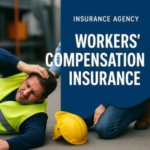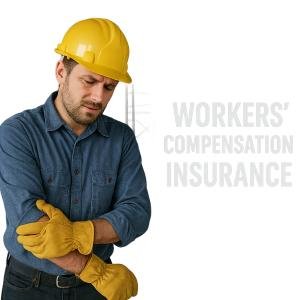
Workers’ Comp Coverage Guide for Temp Staffing
July 25, 2025
Avoid Misclassification: Georgia Workers’ Comp Class Codes for Security Guards
July 25, 2025
In the realm of risk management and insurance compliance, accurately classifying employees under the correct workers’ compensation class codes is critical-particularly for security guard services. Misclassification of these codes can lead to important financial penalties, increased premiums, and potential legal liabilities for businesses. This article provides a comprehensive overview of workers’ comp class codes relevant to security guards,outlines common pitfalls in classification,and offers guidance on how to ensure proper coding to safeguard your organization from costly enforcement actions. Understanding these nuances is essential for HR professionals, insurance brokers, and business owners aiming to maintain compliance and optimize insurance costs.
table of Contents
- Workers Comp Class codes Explained for Security Guard Roles
- Common Misclassification Risks and Their Financial Implications
- Best practices for Accurate Classification of Security Guard Employees
- Strategies to ensure Compliance and Avoid Penalties in workers Comp Reporting
- Q&A
- To Wrap It Up

Workers Comp Class Codes Explained for Security Guard Roles
- 7720: Unarmed security guards
- 7720: Armed guards carrying firearms
- 7720: Security patrol and surveillance
| class Code | Description | Risk Level |
|---|---|---|
| 7720 | Unarmed Security Guards | Moderate |
| 7720 | Armed Security Guards | High |
| 7720 | Security Patrol & Surveillance | Moderate |
Common Misclassification Risks and Their Financial Implications
Misclassifying security guards under incorrect workers’ compensation class codes can expose businesses to significant financial burdens. One of the most common risks is underestimating the inherent hazards associated with security work, such as exposure to possibly violent situations or emergency response duties. Failure to accurately reflect these risks often results in paying insufficient premiums, which can trigger costly audits and retroactive payments. Additionally, misclassification can lead to denied claims or inadequate coverage, leaving both the employer and employee vulnerable in the event of an injury.
Beyond audit penalties,misclassifications may incur other substantial financial consequences including:
- Fines and legal fees: Regulatory bodies impose fines for incorrect reporting,which can escalate rapidly.
- Increased premium surcharges: Premiums might be recalculated using higher-risk codes retroactively.
- loss of credibility: Poor classification practices can affect business reputation and client trust.
- Operational disruptions: Time and resources spent addressing compliance issues divert focus from core security operations.
| Misclassification Type | Potential Financial Impact | Example |
|---|---|---|
| Classifying Armed Guards as Unarmed | Up to 50% penalty on premiums plus fines | Retrospective audit for armed duty hazards |
| misreporting Part-time as Full-Time | Overpayment or penalty for incorrect payroll | premium recalculation based on inflated hours |
| Incorrect Job Description | Denied or reduced claims compensation | Claims rejected due to mismatch in classification |
Best Practices for Accurate Classification of Security Guard Employees
Ensuring your security guard employees are classified correctly under workers’ compensation codes is crucial to maintaining compliance and avoiding costly penalties. Misclassification can result in unpredictable premium adjustments, audits, and legal complications. To mitigate these risks, always verify the job duties align precisely with the classification definitions. Such as, differentiate between armed and unarmed guards, as their risk profiles-and thus their class codes-differ significantly. Document any specific responsibilities such as patrol, alarm response, or personal protection, as these can impact classification.
best practices include:
- Conduct detailed job description reviews regularly to capture any changes in duties.
- Consult with your insurance carrier or a workers’ comp specialist to confirm appropriate code assignments.
- Train HR and payroll teams on the importance of accurate classification and related compliance requirements.
- Maintain clear records of work performed versus the qualifying criteria for each classification code.
| security Guard Type | Typical WC class Code | Key Risk Factor |
|---|---|---|
| Unarmed Security Guard | 7720 | Lower physical hazard |
| Armed Security Guard | 7720 | Higher risk due to weapons |
| Patrol Guard | 7720 | Exposure to night shifts and hazards |
| Specialized Threat Protection | 7720 | High risk, personal protection tasks |
Strategies to Ensure Compliance and Avoid Penalties in Workers Comp Reporting
To maintain accurate workers’ comp reporting, it is essential to establish clear internal procedures that align payroll systems with the correct classification codes assigned to security guards. Conduct regular training sessions for HR and payroll staff to emphasize the importance of proper classifications and the nuances that differentiate various security roles. Implementing a standardized checklist before submitting reports can dramatically reduce errors. This checklist should include verifying employee duties, reviewing contract terms, and ensuring wage data matches the corresponding workers’ comp codes. By fostering a culture of compliance, organizations can significantly minimize the risk of audits and subsequent penalties.
Additionally, technology plays a pivotal role in supporting compliance efforts. leveraging payroll software with built-in classification verification tools can proactively flag discrepancies before submission. Consider scheduling periodic audits-both internal and third-party-to catch misclassification trends early. The following table outlines essential steps to ensure ongoing compliance:
| Compliance Action | Key Benefit | recommended Frequency |
|---|---|---|
| Employee Duty Reviews | Accurate classification alignment | Quarterly |
| Payroll System Validation | Reduces reporting errors | Monthly |
| Staff Training Workshops | Enhances knowledge on classifications | semi-Annually |
| Third-Party Compliance Audits | Unbiased risk assessment | Annually |
Q&A
Q&A: Workers’ Comp class Codes for Security Guards – Avoid Misclassification Penalties
Q1: What are Workers’ Compensation Class Codes?
A1: Workers’ Compensation Class Codes are standardized numerical codes assigned by insurance companies to categorize different types of jobs and industries. These codes help determine the appropriate insurance premiums based on the risk level associated with specific job duties.Q2: Why is proper classification important for security guards?
A2: Proper classification ensures that security guards are charged the correct premium rates for workers’ compensation insurance, reflecting the actual risks of their job. Misclassification can lead to penalties, underpayment or overpayment of premiums, and potential legal liabilities.
Q3: What coudl happen if a security guard is misclassified under the wrong workers’ comp code?
A3: misclassification may result in fines, audits, and back payments. The insurance company might impose penalties for underreporting risk, and employers may face legal consequences or increased premiums upon correction.
Q4: What are common workers’ comp class codes used for security guards?
A4: Common class codes for security guards often fall under numbers like 7720 (Security Guards, Guard Dog) or 7720 (Patrol or Watch Guards). However, variations exist depending on job specifics, such as armed guards or non-armed personnel.
Q5: How can employers ensure security guards are classified correctly?
A5: Employers should consult with their insurance carrier or a workers’ compensation expert,provide detailed job descriptions,and regularly review classifications especially if job duties change or the workforce evolves.
Q6: What role does job duty description play in determining the class code?
A6: Job duties directly influence classification becuase workers’ comp premiums are risk-based. Guards involved in higher-risk activities (e.g.,armed security,patrols) may have different codes then those performing low-risk,static roles like gatekeeping.
Q7: Can misclassification affect security guards’ workers’ compensation benefits?
A7: While classification primarily impacts employer premiums and compliance, misclassification may also affect the benefits workers receive if their actual job exposure or injury risk is not properly represented.
Q8: Are there any best practices employers should follow to avoid misclassification?
A8: Yes. Best practices include maintaining accurate job descriptions, training HR and payroll staff on classification importance, conducting periodic reviews of workers’ comp documentation, and engaging qualified insurance advisors.
Q9: What should an employer do if they suspect misclassification has occurred?
A9: Employers should promptly contact their insurance carrier or broker, review employee job duties, and correct any misclassifications. Proactively addressing the issue can mitigate penalties and protect against future compliance problems.
Q10: How does proper classification benefit the security guard employer overall?
A10: Accurate classification ensures fair premium costs, reduces legal and financial risks, maintains compliance with insurance regulations, and contributes to a better-managed risk environment for the company.
To Wrap it Up
accurately understanding and applying workers’ comp class codes for security guards is essential to maintaining compliance and avoiding costly misclassification penalties. Employers must ensure that each employee is assigned the correct classification based on their specific job duties and work environment. Regularly reviewing and updating class codes in collaboration with insurance providers and regulatory agencies can safeguard your business from financial and legal risks. By prioritizing proper classification, companies not only protect their workforce but also uphold operational integrity within the security industry.
“This content was generated with the assistance of artificial intelligence. While we strive for accuracy, AI-generated content may not always reflect the most current information or professional advice. Users are encouraged to independently verify critical information and, where appropriate, consult with qualified professionals, lawyers, state statutes and regulations & NCCI rules & manuals before making decisions based on this content.”

